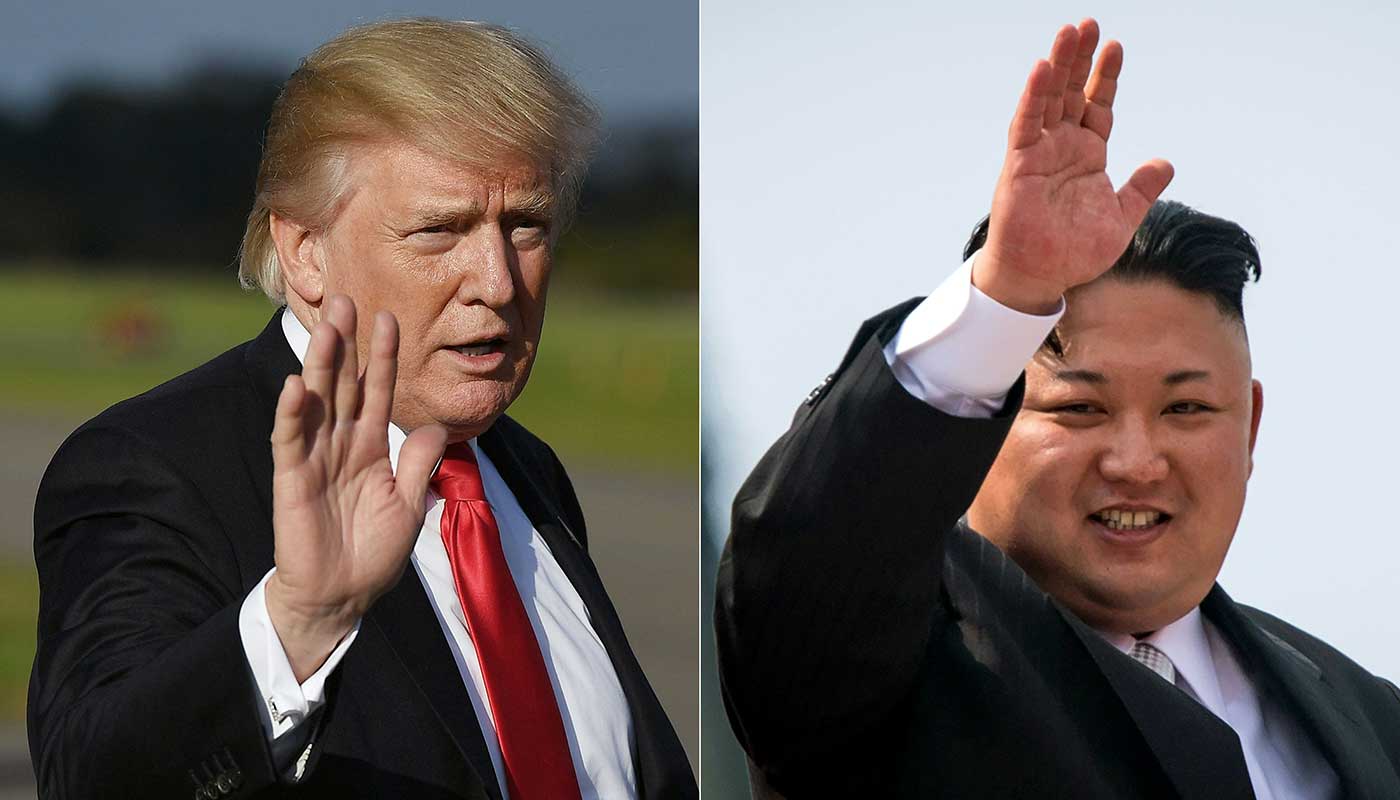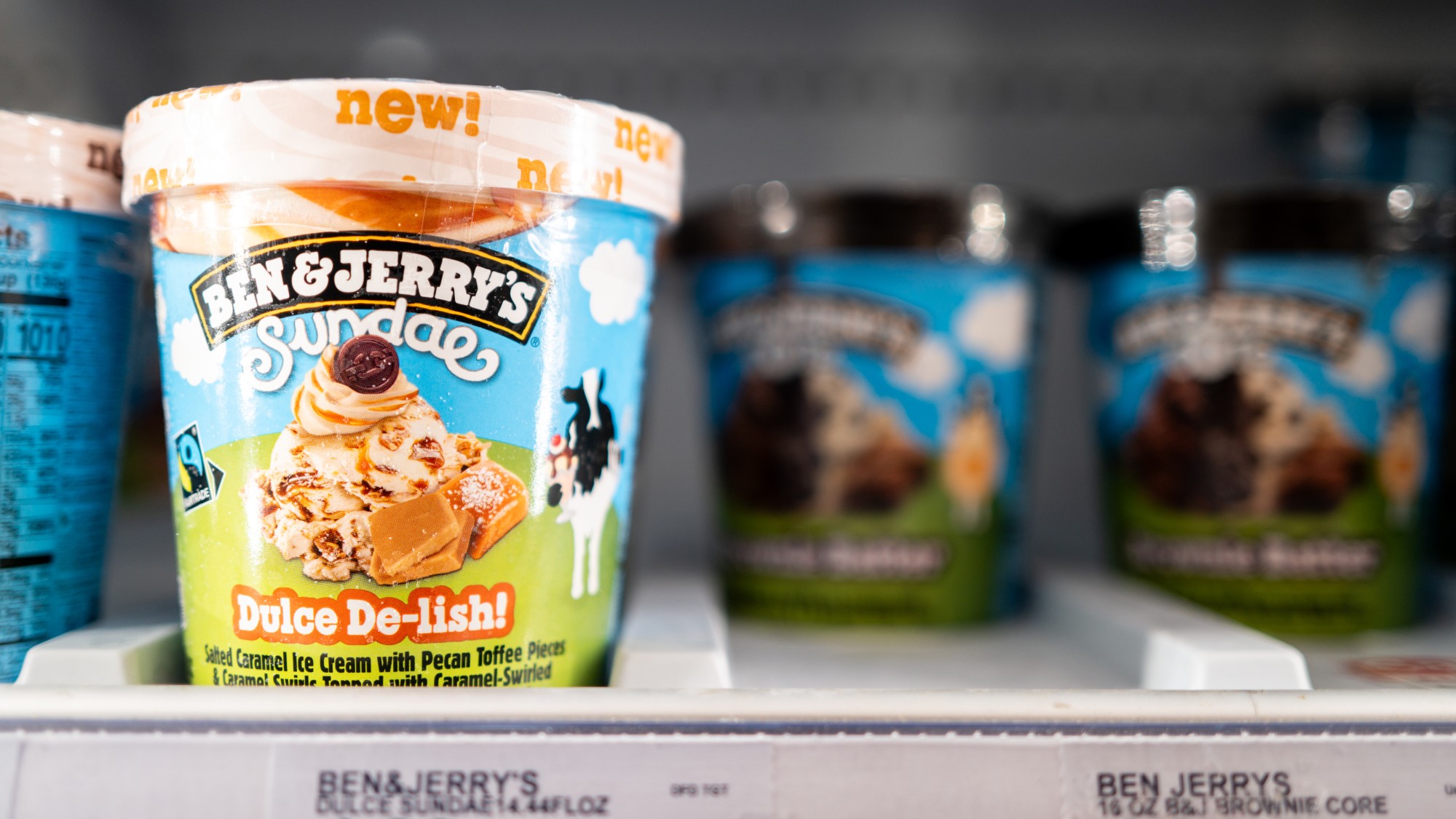Donald Trump reveals details of meeting with Kim Jong Un
Historic talks set to take place in Singapore on 12 June

A free daily email with the biggest news stories of the day – and the best features from TheWeek.com
You are now subscribed
Your newsletter sign-up was successful
21 March
Judge tells Donald Trump: no one is above the law
A New York Supreme Court judge has rejected Donald Trump’s request to dismiss a defamation lawsuit brought by former Apprentice contestant Summer Zervos, who claims Trump sexually assaulted her in 2007.
Zervos alleges that Trump forcibly kissed and groped her on two separate occasions in 2007. She is suing for defamation after he dismissed her claims as politically and financially motivated during the 2016 election campaign.
The Week
Escape your echo chamber. Get the facts behind the news, plus analysis from multiple perspectives.

Sign up for The Week's Free Newsletters
From our morning news briefing to a weekly Good News Newsletter, get the best of The Week delivered directly to your inbox.
From our morning news briefing to a weekly Good News Newsletter, get the best of The Week delivered directly to your inbox.
The ruling “raises the possibility that Trump could be ordered to submit to a deposition about his conduct toward Zervos and perhaps other women as well”, Politico reports.
Since the presidential race, more than a dozen women have come forward accusing the president of sexual misconduct in the past. He denies any wrongdoing.
Trump is also the subject of separate civil suits from porn star Stormy Daniels and former Playboy model Karen McDougal, who both claim to have had affairs with him.
Daniels, who says she had a tryst with Trump in 2006 and was subsequently paid $130,000 in hush money, is suing him and his lawyer, Michael Cohen.
A free daily email with the biggest news stories of the day – and the best features from TheWeek.com
McDougal has filed a lawsuit against the National Enquirer’s parent company American Media Inc (AMI) - owned by a friend of the president - seeking to be released from a 2016 agreement to not discuss her affair with Trump.
“Like Stormy Daniels, [McDougal] is seeking ‘declaratory relief’ — she wants the court to declare her deal with AMI invalid, which would help her tell her story publicly without fear of legal repercussions,” Vox reports.
Jonathan Turley, a law professor at George Washington University, in Washington DC, said these lawsuits could pose more of a threat to Trump than the ongoing Russia probe.
“I would not be worried about obstruction,” Turley told Politico. “Financial stuff, false statements and Stormy Daniels are the real big ones.”

21 March
Donald Trump under fire for congratulating Vladimir Putin
Donald Trump has reportedly ignored advice from his national security officials by breaking with protocol to congratulate Vladimir Putin on his recent reelection.
The Washington Post reports the Trump had been given briefing papers prior to the call which included one section with the words “DO NOT CONGRATULATE” in all capital letters.
Republican Senator John McCain led the criticism of Trump, saying: “An American president does not lead the free world by congratulating dictators on winning sham elections.”
The Guardian says that president of the European commission, Jean-Claude Junker, has raised the ire of several European politicians after he also offered his congratulations to Putin.

20 March
Trump issues ‘sharp-tongued’ rebuke of Iran in Persian New Year message
Donald Trump has used his Persian New Year presidential statement to to criticise Iran’s government and military leaders.
“Today, the Iranian people face another challenge: rulers who serve themselves instead of serving the people.”
Such “sharp-tongued language” is unusual in a celebratory presidential message, says Bloomberg.
Trump also said that the US Treasury Department would issue guidance “reaffirming America’s support for the free flow of information to the citizens of Iran” and that he would hold the Iran regime accountable for cyberattacks abroad.
The president - who has threatened to pull out of a multilateral deal with Tehran aiming at curbing Iran’s nuclear programme - called the nation’s military, the Revolutionary Guard, “a hostile army that brutalises and steals from the Iranian people to fund terrorism abroad”.
He also accused the group of impoverishing Iran’s people, damaging the country’s environment and suppressing civil rights.
The harsh tone “contrasted with Trump’s Nowruz statement last year, which made no mention of politics”, reports Reuters.
The US leader “seems intent on doubling down on policies designed to vilify Iranians”, says The Washington Post’s Jason Rezaian.
The Iranian-American journalist cites Trump’s travel ban on Muslim majority countries as “overwhelmingly affecting Iranians, since they made up a greater number of visa applications than all the other affected nationalities combined”.
“Through a series of appointments and policy moves, this administration is sending a very clear message to Iranians: We don’t want you here,” Rezaian argues.
Trump’s Nowruz message precedes his first meeting with Saudi Crown Prince Mohammed bin Salman at the White House. The heir to the Saudi throne will “push Washington for a harder line on Iran and dangle the prospect of billions of dollars of investment in Silicon Valley companies”, says the Financial Times.
In a CBS interview over the weekend, Prince Mohammed said “ideological” Iran was playing a harmful role in Yemen, where it backs Houthi rebels.
Meanwhile, Adel al Jubeir, Saudi Arabia's foreign minister, emphasised the kingdom’s desire to step up efforts to counter Tehran’s influence. “We have called for tougher policy on Iran, I’m calling for it right now,” he told reporters in Washington DC.

19 March
Trump seeks death penalty for drug dealers
US President Donald Trump has suggest introducing the death penalty for drug dealers under drastic new plans aimed at tackling the country's opioid drug epidemic.
In a briefing outlining the proposals, Andrew Bremberg, director of Trump's Domestic Policy Council, said: “The Department of Justice will seek the death penalty against drug traffickers when it's appropriate under current law.”
The White House did not offer specific examples of situations in which this might apply, instead referring further questions to the Justice Department.
Current federal law allows for the death penalty in certain drug cases, including murder related to a drug trafficking offence, and murder committed during a drug-related drive-by shooting, according to the Death Penalty Information Center, a nonprofit capital punishment monitor.
Doug Berman, a law professor at Ohio State University, told The Japan Times that it was not clear whether death sentences for drug dealers would be constitutional, even for those whose product causes multiple deaths. Berman said the issue would be “litigated extensively and would have to be definitively decided by the US Supreme Court”.
In less controversial measures, the US government will seek to cut opioid prescriptions by a third over the next three years by promoting practices that reduce overprescription of opioids in federal healthcare programmes.
Trump will officially unveil the new measures during a speech later today in New Hampshire, a state he described as a “drug-infested den” in a 2017 call with the Mexican president.
This is not the first time Trump has called for stronger punishments for drug offenders. The president told an audience at a Pennsylvania rally this month that countries such as Singapore have fewer issues with drug addiction because they have harsher punishments for dealers, The Guardian reports.
He said it was wrong that a person in the US can get the death penalty for murdering one person, but that a drug dealer who potentially kills thousands can spend little or no time in jail.
“The only way to solve the drug problem is through toughness,” Trump said.
He made similar comments during a recent White House summit on opioids, saying: “Some countries have a very, very tough penalty – the ultimate penalty. And, by the way, they have much less of a drug problem than we do. So we’re going to have to be very strong on penalties.”
-
 Switzerland could vote to cap its population
Switzerland could vote to cap its populationUnder the Radar Swiss People’s Party proposes referendum on radical anti-immigration measure to limit residents to 10 million
-
 Political cartoons for February 15
Political cartoons for February 15Cartoons Sunday's political cartoons include political ventriloquism, Europe in the middle, and more
-
 The broken water companies failing England and Wales
The broken water companies failing England and WalesExplainer With rising bills, deteriorating river health and a lack of investment, regulators face an uphill battle to stabilise the industry
-
 Currencies: Why Trump wants a weak dollar
Currencies: Why Trump wants a weak dollarFeature The dollar has fallen 12% since Trump took office
-
 TikTok: New owners, same risks
TikTok: New owners, same risksFeature What are Larry Ellison’s plans for TikTok US?
-
 Trump wants a weaker dollar, but economists aren’t so sure
Trump wants a weaker dollar, but economists aren’t so sureTalking Points A weaker dollar can make imports more expensive but also boost gold
-
 Leadership: A conspicuous silence from CEOs
Leadership: A conspicuous silence from CEOsFeature CEOs were more vocal during Trump’s first term
-
 The end for central bank independence?
The end for central bank independence?The Explainer Trump’s war on the US Federal Reserve comes at a moment of global weakening in central bank authority
-
 Can Trump make single-family homes affordable by banning big investors?
Can Trump make single-family homes affordable by banning big investors?Talking Points Wall Street takes the blame
-
 Phish food for thought: Ben & Jerry’s political turmoil
Phish food for thought: Ben & Jerry’s political turmoilIn the Spotlight War of words over brand activism threatens to ‘overshadow’ the big ice cream deal
-
 What a rising gold price says about the global economy
What a rising gold price says about the global economyThe Explainer Institutions, central banks and speculators drive record surge amid ‘loss of trust’ in bond markets and US dollar